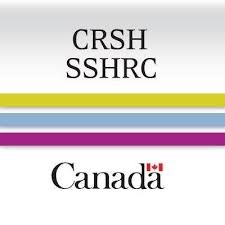
Open
SSHRC Connection Grants
Last Update: October 27, 2025
Canada
Supports knowledge mobilization through events and outreach activities
Grant and Funding
At a glance
Funding available
Financing goals
Increasing community impact
Develop strategic partnerships
Raise awareness and mobilize the public
Eligible Funding
- Maximum amount : 50,000 $
- Minimum amount : 7,000 $
- Up to 50% of project cost
Timeline
- Closing date : February 2, 2026
Eligible candidates
Eligible Industries
- All industries
Location
- Canada
Legal structures
- Non-profit
- Public or Parapublic institution
Annual revenue
- All revenue ranges
Organisation size
- All organization sizes
Audience
- All groups
Non-profit candidates
Sector of operation
- Culture and Arts
- Higher Education
- Other Education
- Research
- Economic, Social and Community Development
- International Activities
- Diversity and Inclusion
Target groups
- General public
- Indigenous peoples
- Artists / creatives
- Nonprofits / charities
- Academia / students
- Community leaders
Revenue structures
- All structures
Scope
- Municipal
- Regional
- Provincial
- National
- International
Overview
The SSHRC Connection Grants provide funding of up to $50,000 to support short-term, targeted knowledge mobilization initiatives such as conferences, workshops, and outreach activities in the social sciences and humanities. These grants facilitate events and activities that exchange and disseminate research knowledge among academic and non-academic participants in Canada and internationally.
Activities funded
- Organizing workshops, colloquiums, conferences, forums, or summer institutes that facilitate knowledge exchange in the social sciences and humanities.
- Initiating outreach activities aimed at engaging a broader public in knowledge mobilization, such as developing policy briefs, articles, media events, speaker series, or public debates.
- Facilitating interdisciplinary or intersectoral exchanges between academic researchers and partners from public, private, or not-for-profit sectors.
- Supporting international research collaboration and exchanges involving researchers, students, and non-academic partners from other countries.
- Promoting research-creation initiatives and Indigenous research outreach events or activities.
Examples of admissible projects:
$ 20,000
Organizing a public debate on climate change policy
$ 40,000
Creating an art exhibit focusing on migration narratives
$ 30,000
Hosting a workshop on Indigenous economic development
$ 45,000
Organizing a bilingual conference on sustainable urban development
$ 50,000
Developing an interactive platform for remote learning
$ 35,000
Hosting a series of media events on healthcare innovation
Eligibility
- The applicant must be either a Canadian postsecondary institution or a not-for-profit organization holding institutional eligibility with SSHRC.
- Individual applicants (excluding postdoctoral researchers) must be affiliated with a Canadian eligible postsecondary institution at the time of application.
- The project must focus on knowledge mobilization in the social sciences and humanities, such as events or outreach activities (not primary research activities).
- The applicant must demonstrate active and significant involvement in organizing and delivering the proposed event or outreach activity.
- Applicants must secure at least 50% matching support (cash and/or in-kind) from sponsoring organizations, confirmed by signed letters of support.
Who is eligible?
- Canadian postsecondary institutions (universities and colleges) holding SSHRC institutional eligibility
- Canadian not-for-profit organizations holding SSHRC institutional eligibility
- International postsecondary institutions (as co-applicants or collaborators only)
- Canadian philanthropic foundations, think tanks, and municipal, territorial or provincial governments (as co-applicants only)
Who is not eligible
- Companies or organizations that are not eligible Canadian postsecondary institutions or not-for-profit organizations with SSHRC institutional eligibility.
- Businesses whose primary activity is conducting research (e.g., field work, interviews, data collection) or developing standalone research publications, as these activities are not eligible for this funding.
- Private sector companies and federal government organizations—these can only be collaborators and cannot apply as primary applicants or co-applicants.
- Organizations seeking funding for activities related to business meetings, book launches, member receptions, or association activities normally covered by operational fees of academic associations.
Eligible expenses
- Development of connection-related tools for knowledge mobilization activities (up to $50,000).
- Salary research allowance for not-for-profit organizations to release personnel from their duties for project participation.
Eligible geographic areas
- Canadian postsecondary institutions that hold institutional eligibility
- Canadian not-for-profit organizations that hold or obtain institutional eligibility
Selection criteria
- Challenge – The aim and importance of the endeavour (40%): Assesses the project's originality, significance, quality of the approach, the value of the research being mobilized, opportunities for training and mentoring, and potential for impact within and/or beyond the social sciences and humanities sector.
- Feasibility – The plan to achieve excellence (30%): Evaluates the suitability of the timeline, the likelihood of meeting objectives, the appropriateness and justification of the budget, and the ability to secure and leverage additional resources.
- Capability – The expertise to succeed (30%): Reviews the experience, outputs, and past results of the applicant(s), evidence of knowledge mobilization activities and impacts, and experience in training and mentoring highly qualified personnel.
How to apply
1
Preliminary Registration
- Ensure your institution has institutional eligibility to administer funds.
- Contact SSHRC if you need to verify or initiate the eligibility process for not-for-profit institutions at least five business days prior to the deadline.
2
Prepare Application
- Compile the project proposal including objectives and budget.
- Gather supporting documents such as letters of support indicating matching funds.
- Ensure all team members meet the eligibility criteria specific to their roles.
- Select if you wish to be considered for any SSHRC joint initiatives.
3
Complete Application Form
- Fill out the application form according to the instructions provided by SSHRC.
- Ensure the application aligns with SSHRC’s guidelines and scoring criteria.
4
Submit Application
- Submit the completed application electronically by an authorized research grants officer or equivalent.
- Ensure submission is before the respective deadline (February 1, May 1, June 20, or November 1 at 8 p.m. eastern).
5
Confirmation of Submission
Receive confirmation of submission from SSHRC, which is typically available through their respective portals.
6
Follow-up and Communication
- Monitor SSHRC’s platform for updates on the application status.
- Engage with SSHRC representatives if additional information or clarification is requested.
Additional information
- If a deadline falls on a weekend or public holiday in Ontario, the application system remains open until 8 p.m. (eastern) on the next business day.
- Results are announced at the end of each funding cycle (January, March, June, September).
- Only contributions from sponsoring organizations provided in signed support letters are counted toward the required 50% matching funds.
- Grant holders are expected to report on the use of funds, funded activities, and outcomes as per requirements included with the notice of award.
Contacts
connection@sshrc-crsh.gc.ca
Canada
Apply to this program
Frequently Asked Questions about the SSHRC Connection Grants Program
Here are answers to the most common questions about the SSHRC Connection Grants. This section explains what the program is, how much funding is available, eligibility requirements, application deadlines, and other important details to help you determine if this grant is right for your business.
What is the SSHRC Connection Grants?
How much funding can be received?
Who is eligible for the SSHRC Connection Grants program?
What expenses are eligible under SSHRC Connection Grants?
Who can I contact for more information about the SSHRC Connection Grants?
Where is the SSHRC Connection Grants available?
Is the SSHRC Connection Grants a grant, loan, or tax credit?
Apply to this program
More programs like this

Grant and FundingOpen
Industrial Research Assistance Program (IRAP) — Financial Assistance
National Research Council Canada (NRC)Financial support for technology innovations

Grant and FundingClosed
Industrial Research Assistance Program (IRAP) – AI Assist
National Research Council Canada (NRC)Supports Canadian SMEs in adopting and integrating advanced AI solutions
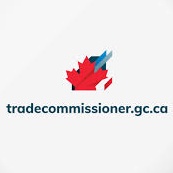
Grant and FundingOpenClosing Soon
CanExport GAC-Led Delegations
Trade Commissioner Service (TCS)Cost-sharing support for SMEs joining GAC-led trade delegations

Partnering and CollaborationGrant and FundingOpen
Strategic Innovation Fund (SIF)
Innovation, Science and Economic Development Canada (ISED)Strategic Innovation Fund supports transformative Canadian economic investments
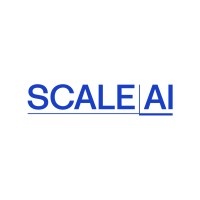
Grant and FundingOpen
AI-Powered Supply Chains Cluster (Scale AI)
Global Innovation Clusters (GIC)Funding to enhance supply chains with AI
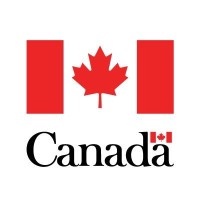
Grant and FundingClosed
Green Industrial Facilities and Manufacturing Program (GIFMP) — Industrial Facility Track
Natural Resources Canada (NRCan)Support for the implementation of energy efficiency and energy management solutions

Grant and FundingOpen
Incentives for medium and heavy-duty zero-emission vehicles (iMHZEV) Program
Transport Canada (TC)Incentives to purchase or lease medium- heavy-duty ZEVs

Grant and FundingOpen
Green Freight Program — Assess and Retrofit
Natural Resources Canada (NRCan)Supports energy-efficient retrofits for Canadian freight fleets
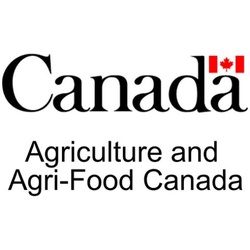
Researchers And FacilitiesPartnering and CollaborationGrant and FundingClosed
AgriScience Program – Clusters
Agriculture and Agri-Food Canada (AAFC)Funding for agricultural research and innovation collaboration
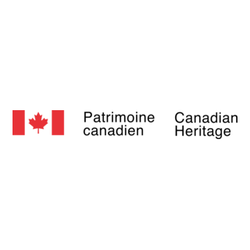
Grant and FundingOpen
International Single Sport Events - Hosting Program
Canadian HeritageSupports hosting international single sport events in Canada
Sign up to our platform to access the SSHRC Connection Grants information sheet for free
Get access to 4,000+ programs, practical guides, personalized alerts, and an AI assistant to support your grant applications.